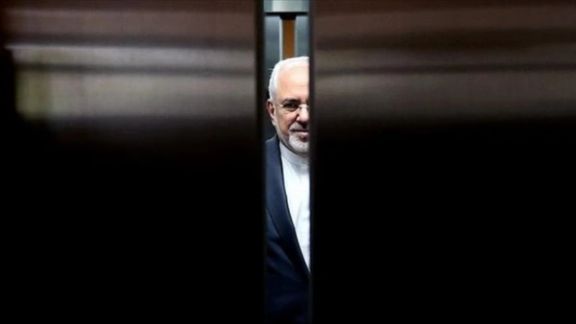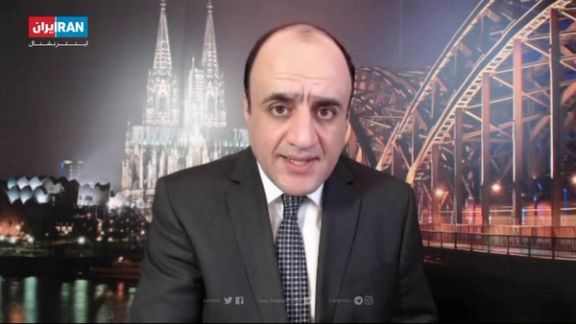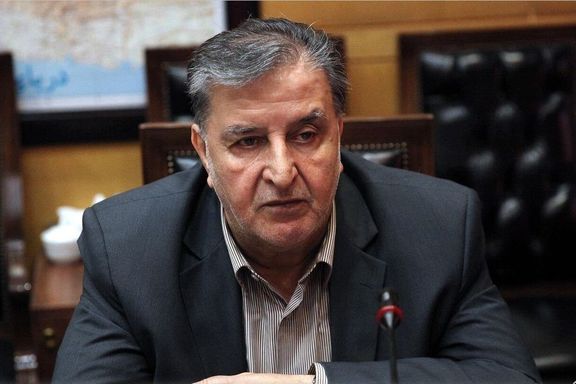Zarif's Latest Statements Ignite Controversy In Iran

Iranian former foreign minister Mohammad Javad Zarif’s statements this week on a range of issues have led to discussions in Tehran about his intentions and plans.

Iranian former foreign minister Mohammad Javad Zarif’s statements this week on a range of issues have led to discussions in Tehran about his intentions and plans.
Reactions to Former Foreign Minister Mohammad Javad Zarif's five-hour appearance in a chatroom on Club House June 6, and the statements he made about the 2015 JCPOA nuclear deal, relations with the United States, as well as Russia’s and China's role in Iran's foreign policy and a few domestic political issues have given way to varying interpretations of why he chose to speak and the timing of his move.
Among many of his points, Zarif insisted that former President Donald Trump had invited him to the White House but superiors in Tehran had not allowed him to go.
On social media, the move has been interpreted as a kickstart in Iranian reformist's campaign for the March 2024 parliamentary and 2025 presidential elections. However, most social media users who commented on Zarif's move have said that he is a front for former Presidents Mohammad Khatami or Hassan Rouhani.
Iranian political analyst Mehdi Mahdavi Azad told Iran International TV that "It is unlikely Zarif would run in any elections, and it is even more unlikely that he would be allowed to run for a key elected position." He added that unlike his previous interviews, Zarif repeatedly blamed Supreme Leader Ali Khamenei for Iran's foreign policy failures particularly in the nuclear issue.

A moderate-conservative newspaper in Tehran issued a call Thursday as a sign of support for the former foreign minister to have Zarif publicly debate hardliners on the nuclear issue and foreign policy.
Political analyst Kambiz Ghafouri wrote in a tweet that Zarif is an obsolete political figure both inside Iran and on the international scene. Ghafouri opined that Zarif's renewed appearance in politics will inevitably be in a comical form.
Meanwhile fact-cheking organization Fact Nameh highlighted ten false statements Zarif made during his Club House appearance. These included his assessment of Saudi Arabia's military budget being seven times higher than what Iran spends on its military. Another one of his false statements was that there are no non-elected permanent positions in the Iranian government.
Former lawmaker Ezzatollah Yousefian-Molla told reporters in Tehran that Zarif is his own man and that he is not acting as a front for anyone else. He said: "Zarif believes himself to be as big as, if not bigger than all other politicians in Tehran."

Yousefian-Molla said with a high degree of certainty that Zarif wishes to take run in the next presidential election and wishes to send a message to potential voters that he has done nothing wrong during his tenure as foreign minister.
Nonetheless, what Zarif said was controversial and he might be pushed to explain some matters to clear himself of accusations that will come from hardliners, Yousefian-Molla argued.
The first attack on Zarif came quickly and from nowhere other than the IRGC, the Revolutionary Guard’s mouthpiece Javan newspaper.
In a strongly-worded commentary Wednesday morning, Javan newspaper characterized Zarif's move as a media controversy aimed at defending his performance as the former Foreign Minister. Javan wrote that "What Zarif did was playing with words, an attempt that will get him to nowhere." The daily further accused Zarif of "ridiculing the ideas of faithfulness, hope and idealism, and the philosophy of resistance."
Javan charged that some of Zarif's allies are now in jail on charges of embezzlement or have been hanged for espionage. The daily further asked how Zarif expected to get results from negotiating with the United States while he believed that "The United States can destroy all of our military capability with only one bomb?" Javan was referring to a remark Zarif had made in the distant past.
The IRGC's newspaper also accused Zarif of letting down the nation and leaving them in shallow waters in the hands of those who could hunt them down. The daily advised Zarif not to be "modest in front of the enemy and arrogant in front of the Iranian nation."